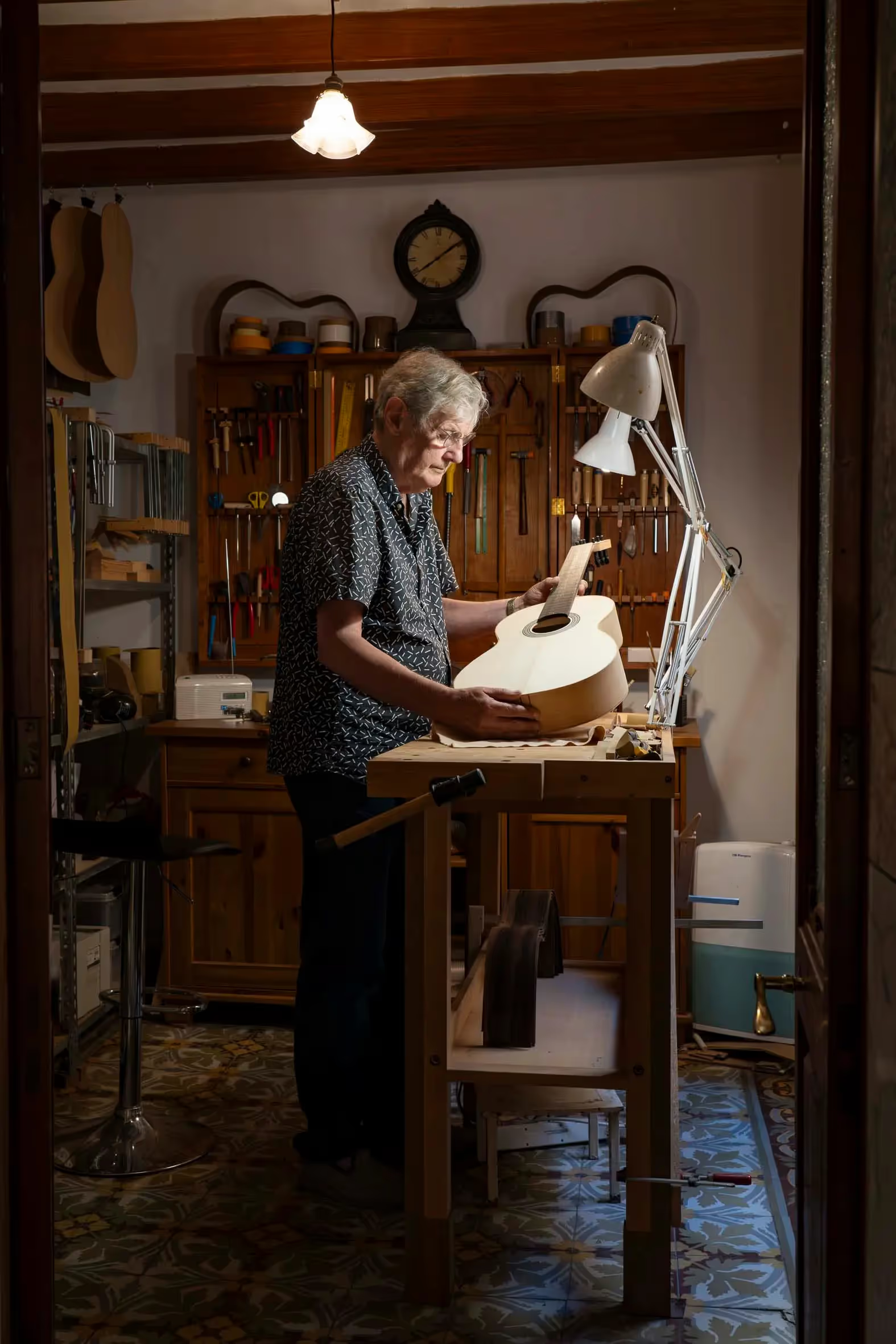
O
n a quiet side street in Fornalutx is the workshop of a classical guitar maker, a luthier, as the traditional term is called, who has been steadily perfecting his art for over 55 years. Born in Denmark, Kenneth Brögger left home as a teen and found himself doing a series of odd-jobs such as postman, milk boy, glass worker’s helper and street musician, among many others, until he wandered into the workshop of Arne Schlünsen, one of Copenhagen’s leading guitar makers, with his friend who needed his guitar fixed, and he fell in love. Brögger writes about the wonderful smell that greeted them in that workshop, a mix of what he later learned was exotic woods like alpine spruce, ebony and mahogany.
He told Schlünsen that he wanted to become a guitar maker as well and could he help, but, although they would go on to be good friends and colleagues, at the time, he was met with a discouraging comment of how he’d spend $300 to get the materials and probably sell the guitar for $30. Regardless, Brögger said, “I knew I would like to be a guitar maker someday.” It was 1965 and he was 16. Several years later, he eventually apprenticed with Yngve Barslev in Copenhagen, who would be Brögger’s master and a great friend until his death in 1979. Brögger established his first guitar workshop on March 1, 1975.















